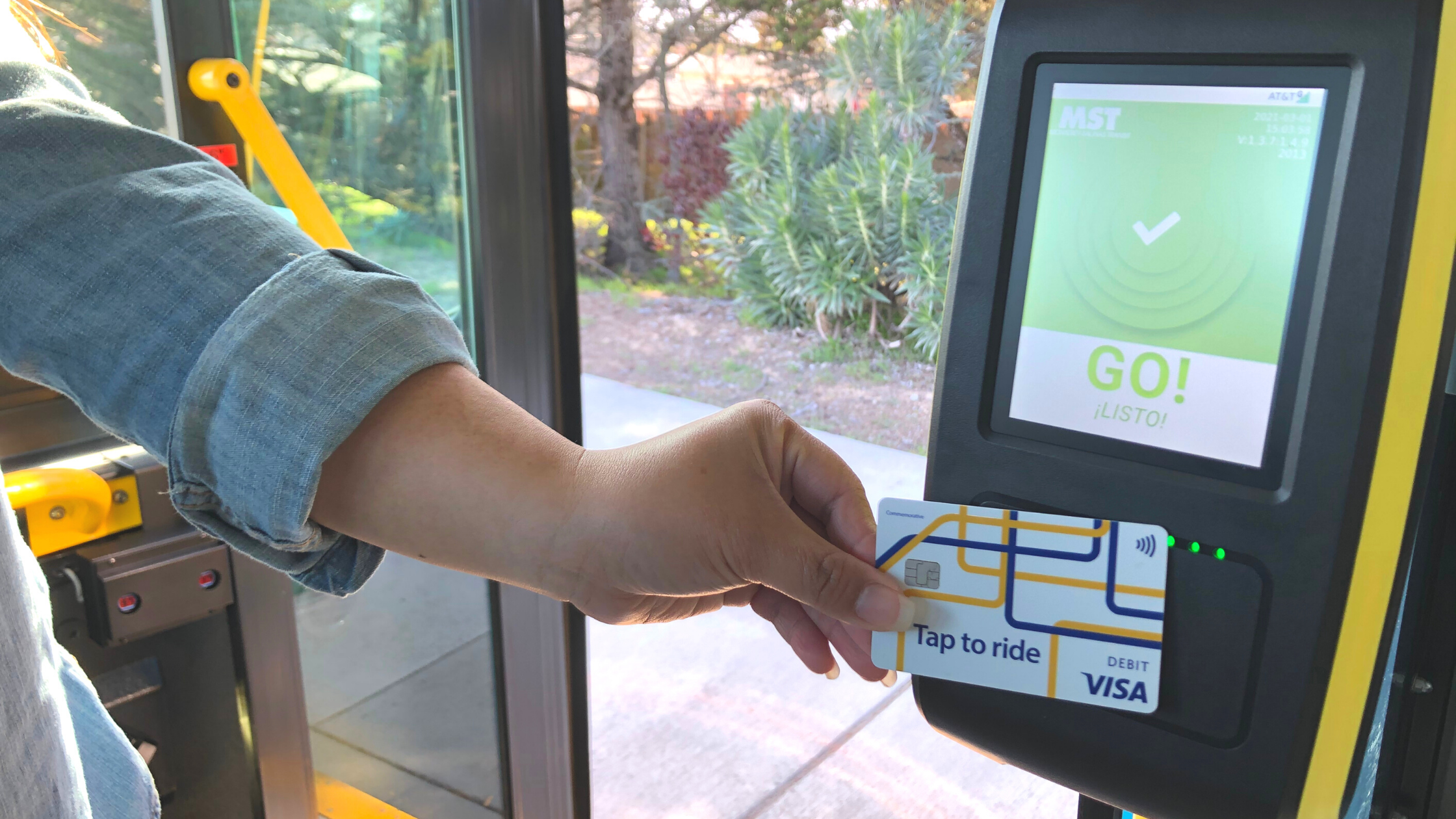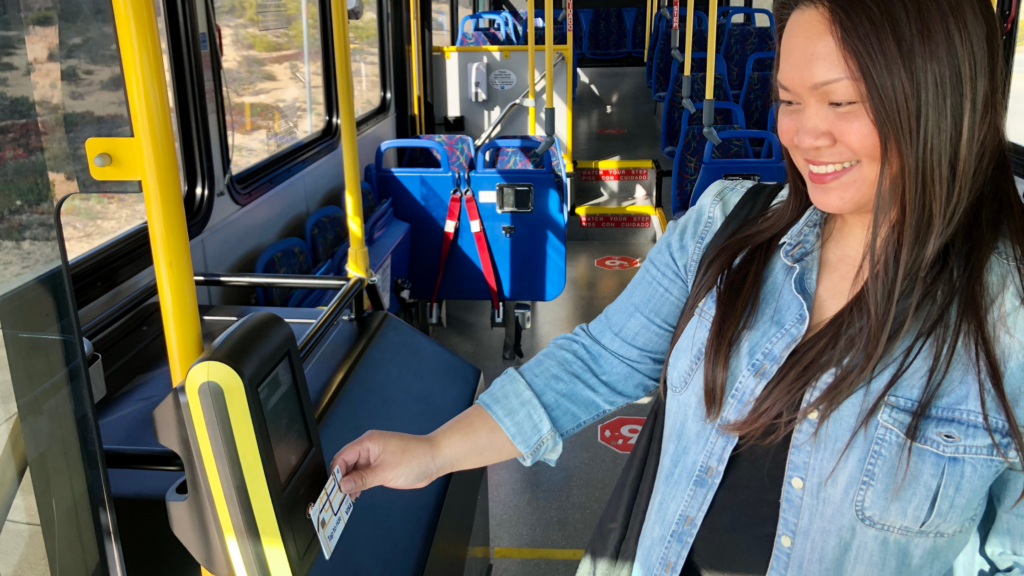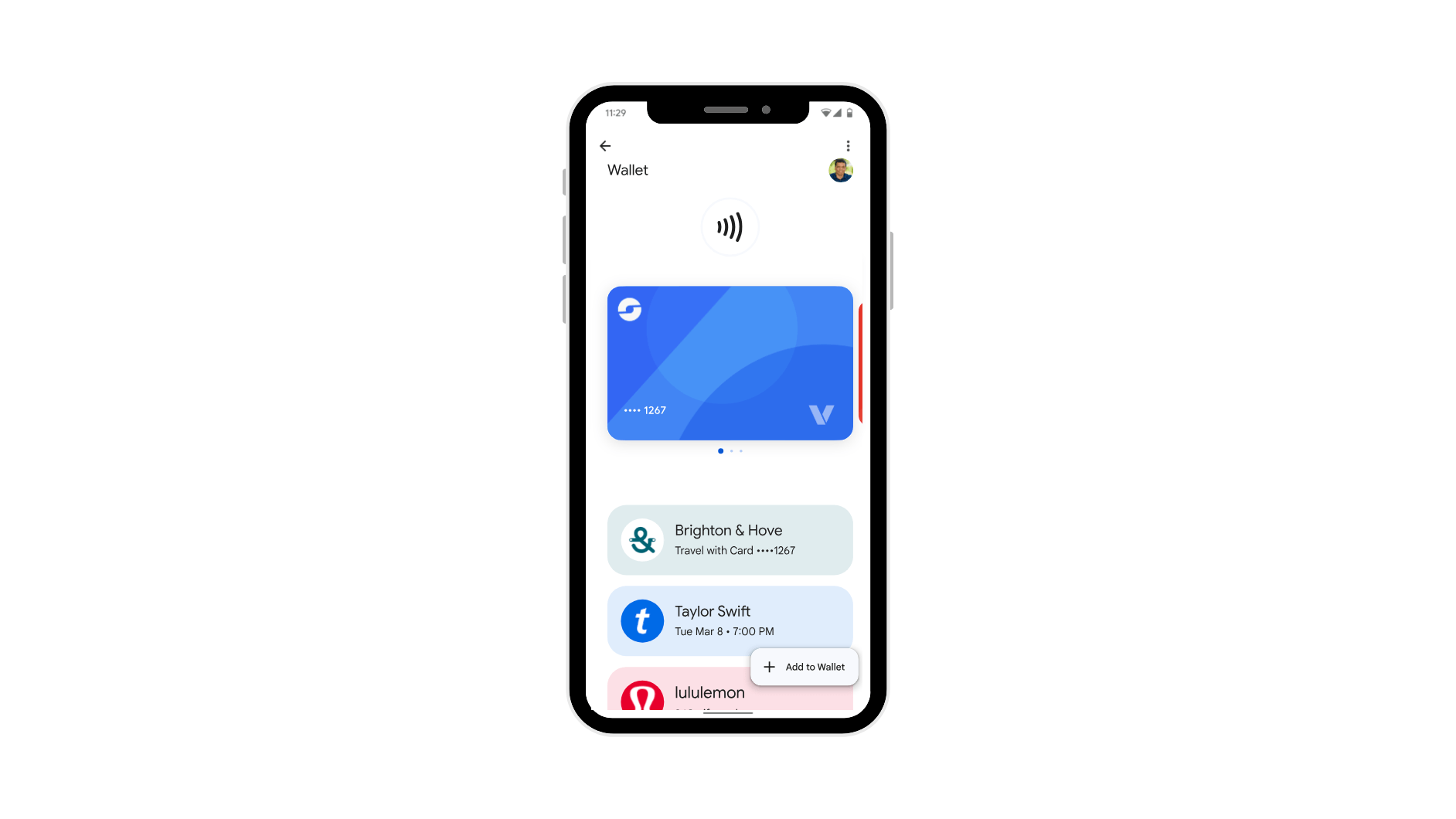California’s first contactless transit payment system goes live
by Andreea

Monterey-Salinas Transit (MST) and Caltrans collaborate with Littlepay, Visa and Cybersource. The demonstration kicks off a statewide project aimed at improving rider experience.
Littlepay is providing payment processing for a contactless payment demonstration on Monterey-Salinas Transit (MST; mst.org) buses, which launches today. For the first time in California, passengers can pay for journeys using their contactless debit, credit, prepaid card or payment-enabled device. This initiative is part of the Caltrans-led California Integrated Travel Project (Cal-ITP) to improve travel planning and transit payments throughout the state.
Caltrans, in collaboration with Visa, is working with Cybersource, a Visa solution, Littlepay, SC Soft, Feig and Elavon to provide state-of-the-art ticketing and payment technology. MST riders can simply tap their contactless credit, debit, prepaid card or digital wallet on readers as they board MST buses for a simple, secure way to pay.
Using Littlepay’s merchant portal, MST has configured daily, weekly and 31-day fare caps to create cost savings for frequent riders without any extra effort on their part – all they need to do is tap. At point of tap, Littlepay’s back office checks whether a rider’s card is valid for travel using near real-time deny lists. It provides authorization and settlement; and price adjustments to reflect fare caps.
Trusted payments infrastructure
Cybersource brings its suite of payment and fraud management tools and its network of partners and acquirers to the project. The payment gateway has been instrumental in facilitating this demonstration, working effectively with Littlepay and acquirer Elavon to connect an end-to-end solution.
MST is the first transit agency in California and the fifth in the U.S. to accept tap-to-pay fares, following Chicago, Miami, New York and Portland, OR. It is also the first public transit system in the country located outside of a main urban area to introduce open contactless payments.
Amin Shayan, CEO of Littlepay, says,
“This project is exciting for Littlepay as it’s our first deployment in the U.S. We’re confident it will show small- to medium-sized transit agencies around the country that seamless payment experiences are not just for the biggest cities. We’re looking forward to MST’s passengers using the system and enjoying the benefits.”

Contactless transit payments – passenger benefits
The passenger benefits of contactless payments include speedier transaction times and the convenience of being able to pay for fares using the bank card or smartphone they carry everywhere. There is no need to stand in line to buy a paper ticket, use an agency-specific fare card or handle cash while boarding, which can cause a bottleneck at the vehicle entrance. Crucially, during the pandemic, tap-to-pay technology provides a safe and easy experience for both riders and transit operators seeking limited physical touch points and face-to-face interactions.
MST riders using the contactless system are guaranteed the best-value fare for the journeys they take. Their fares within capping periods will be aggregated and capped automatically before payment is taken. For added reassurance, they can keep track of their travel and transaction history using the transit agency’s new online Customer Transactions Inquiry Page, powered by Littlepay.
Statewide goals for public transit
Littlepay is well-established in the UK and Ireland as a transit-focused PSP, with a customer base of over 200 transit operators using its platform. This is the first time its technology has been used in the United States. Amin Shayan says
“We’re honoured to be involved in the California Integrated Travel Project, helping California deliver on statewide goals to improve passenger experience, simplify payments and promote equity.”
Contactless fare collection is just one aspect of Cal-ITP, alongside improving access to accurate transit information and creating a statewide eligibility verification program for fare discounts. The MST demonstration is intended to show how a transit agency can incorporate open-loop payments in line with Cal-ITP objectives: cost-efficiency for transit agencies; interoperability for users across transit agencies; and the seamless provision of passenger-pleasing discounts for selected customer groups. More information is available at calitp.org.
Combining best-in-class payments infrastructure and ticketing technology, the partners involved in this project are confident in providing an effortless and cost-effective payment experience. As more transit agencies in California come on board, passengers will be able to travel seamlessly from one area to another, using tap-to-pay technology on the transit systems of their choice.
Trending Topics

Project Highlights: Washington DC’s record breaking upgrade to accept open loop payments

Nevada County Connects leverages Cal-ITP’s Mobility Marketplace to elevate the payment experience across its bus network

 Insight
Insight
 Knowledge
Knowledge
 News
News
